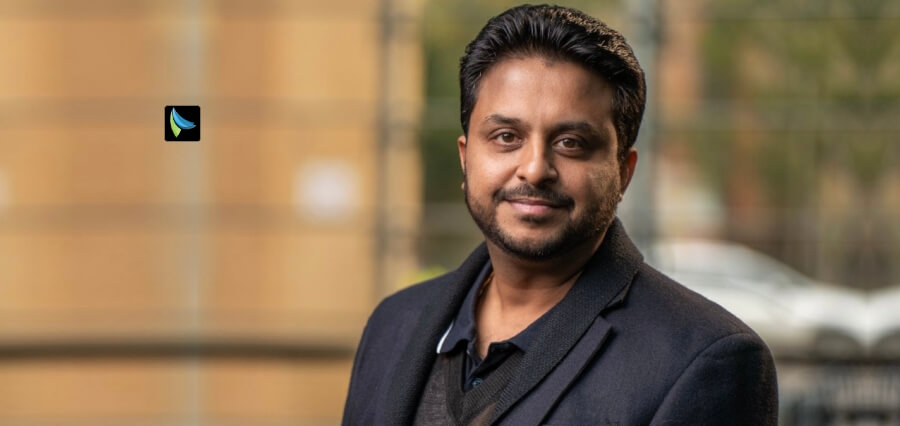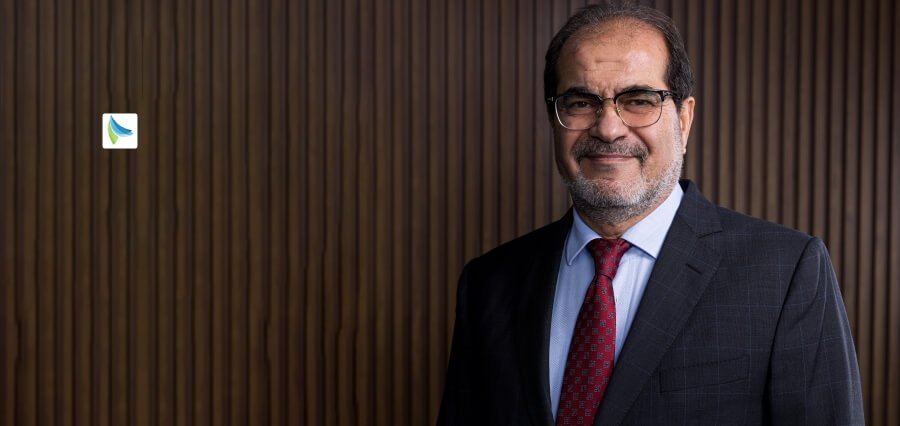How a Reflective Approach to Life Led (lead) to a Successful Academic Career!
Life is a winding path, full of unexpected twists and turns. We may start with grand plans, meticulously mapping out every step, but the reality is that we rarely get to pave those ways as we envisioned. The beauty lies in embracing the unknown and being open to the countless possibilities that life presents.
You might have dreamed of becoming a doctor but ended up pursuing the arts. Or perhaps you had your heart set on a corporate career, but a chance encounter led you down the path of an entrepreneurial venture away from the corporate world. These deviations from our initial plans are not failures but rather opportunities to discover new passions, learn invaluable lessons, and grow in ways we may have never considered or imagined.
“I never thought I would be in an academic setting as an educator. I preferred to play cricket, as perhaps most children do in my home country, during my teenage years.” For Dr. Ankit Agarwal, the journey to becoming an educator was an accidental one. Growing up, he had dreams of pursuing cricket professionally like many young athletes in India. However, life had different plans for Ankit, or perhaps, Ankit embraced life with different plans.
Today, he finds himself in an academic setting – a path he never imagined taking. As a Lecturer & Course Coordinator in the Management discipline at The University of Adelaide Business School, he has taught over 12,000 students, discovering his true passion in being surrounded by bright young minds. Ankit also serves as a Program Director for the Bachelor of Business at the Adelaide Business School within the Arts, Business, Law and Economics Faculty.
Despite his packed academic roles, his passion extends far beyond the classroom walls. He is deeply involved in community service, sitting on the board of DreamCricket Australia and as a Director in South Australia bringing the game of Cricket to the Special Needs Children in the schools of South Australia. Additionally, he is an active member of the Rotary Club of Adelaide and a Life Member of Golden Key. He is also a Co-Founder Member of the Human Intelligence Movement. The mission of the Human Intelligence movement is to ensure all students have the skills to thrive and succeed in an Artificial Intelligence (AI) world.
In the classroom, Ankit strives to make business concepts relatable by drawing parallels to real-world experiences and familial environments. He believes in using contextual examples from his and his students’ families and personal lives that students can connect with, allowing them to grasp complex ideas through a lens they understand. It’s an approach that resonates, enabling a two-way learning experience where he not only assists his students in discovering knowledge but also gains valuable insights from his students’ diverse backgrounds and perspectives to further develop his own learning.
While his current reality may have deviated from his childhood aspirations of playing Cricket at the highest level, Ankit acknowledges every opportunity as a privilege. He finds immense fulfillment in academia and community service, driven by a natural motivation to make a positive impact on the lives of those around him.
His journey serves as an inspiration, proving that sometimes the greatest paths stem from the most accidental of beginnings. His ability to adapt and thrive in an unplanned arena is proof of his devotion and zeal to personal growth and contributing to society.
As he continues to facilitate young minds’ growth and development and actively engage in civic endeavors, Dr. Ankit exemplifies the power of incorporating the unexpected and making the most of the opportunities life presents, even if they veer from one’s initial dreams and aspirations.
Let us further learn more about his journey:
The University of Adelaide’s Legacy of Innovation
Dr. Ankit works at the University of Adelaide Business School, an institution with a rich history dating back to 1874. As the third oldest university in Australia, it has consistently maintained its position among the top institutions globally. Currently ranked 82nd in the QS 2025 Rankings, the university is committed to its role as a future-maker, driving meaningful change through its pursuit of educational and research superiority.
The university’s focus is informed by the multifaceted changes shaping modern society, including the need for economic transition, social transformation, the impact of globalization, technological disruption, and the pursuit of sustainability. For over 150 years, researchers at the University of Adelaide have made significant contributions to groundbreaking discoveries, such as the invention of x-ray crystallography, insulin, penicillin, and designing the Olympic flame for Sydney 2000 and Athens 2004.
The university alumni has received numerous prestigious awards and recognitions, including the Nobel Prize, which has been awarded annually since 1901 for outstanding achievements in physics, chemistry, medicine, literature, and peace. Only 15 Nobel Prizes have been awarded in Australia, with five of these going to University of Adelaide scholar researchers, including the second youngest ever laureate and the only father-son duo to win the prize in the same year.
The University of Adelaide has a long history of innovation, having been the first university in its state, the first in Australia to admit women to all degree courses on an equal basis to men, the first to offer degrees in science and business, and the first to establish a conservatorium of music. This spirit of innovation has continued to grow stronger in recent times.
For example, the university was involved in major scientific discoveries such as gravitational waves, the Higgs boson elementary particle, and a celestial source of high-energy neutrinos. It is currently co-leading the creation of the world’s first definitive legal text on conflict in space, and its photonics and advanced sensing researchers have developed the world’s most precise timepiece, known as the Sapphire Clock. Additionally, the university has had young researchers recognized in MIT Technology Review’s prestigious Innovators Under 35 list for the Asia Pacific, with the university being the only Australian institution represented in 2020 and one of just two in 2019.
From Cricket to Academia
When Ankit was just five years old, he began to develop a sense of understanding the world around him. He was fascinated by the various prefixes his extended family members used, such as Dr., Eng., Prof., Major, Col., and Capt. This sparked a desire in him to have a similar prefix next to his name.
However, as he grew older, his focus shifted to cricket, and he played at the club level U-19 in Lucknow, Uttar Pradesh, his hometown. Loosing both his grandparents in the same month took a toll on him, which made him leave his home town to Dublin. He kept his dream alive of playing cricket and kept wickets for North Kildare Country in the Republic of Ireland. Despite his passion for cricket, Ankit’s pursuit of it was hindered by visa restrictions and financial obligations to his family.
After experiencing significant life changes, including winning a lawsuit against a US-based company (though the majority of it went to the Law makers who assisted Ankit with the case) and dealing with personal struggles that once made him run away from his home into a town where no one recognized him, Ankit applied for permanent residency in Australia and was granted it by the Australian Government. He began searching for academics aligned with his research interests in employability, which had a profound impact on his mental well-being. His persistence in contacting a specific academic at the University of Adelaide Business School led him to send numerous emails to achieve his new goal of pursuing a research degree.
After finding Dr. Peter Sandiford’s, a Senior Lecturer in Organizational Behaviour at the University of Adelaide, research profile, Ankit started writing emails to him. Peter agreed to supervise Ankit’s second Masters Degree in Business Research, and he moved to Australia on April 24, 2015.
Initially, he struggled financially, but he persevered and eventually secured admission to his second Masters. Peter offered him the opportunity to teach one of his courses in 2016, which solidified Ankit’s commitment to academia and led him to pursue his PhD with a full scholarship in 2017. Throughout this journey, Ankit worked various jobs, from cleaning toilets and making beds while living in a hostel with no money in his bank to door-to-door sales selling home improvement products and services and swimming pool for an Australian company in Adelaide, while also teaching and researching in the field of employability. He also worked at a finance company in Adelaide and collaborated with exceptional individuals.
Today, he is involved in a range of activities, including reviewing for prestigious journals, presenting research at conferences globally, serving on the boards of companies and journals, and representing the University of Adelaide’s Arts, Business, Law and Economics (ABLE) faculty in Vietnam and China. He is also responsible for overseeing the Bachelor of Business programs at the University of Adelaide Business School. In addition to working on his novel Imaginative Integrated Dialogical Approach (IIDA), a method to presenting literature in qualitative research methods, Dr. Ankit is also developing concepts of safe spaces that combine psychological and social safety. He is also working on developing his teaching andragogy, which involves teaching students business concepts using their and his own family experiences, and he has named it Student-Centered Experiential Learning (SCEL). Additionally, he has coined terms such as Side-by-Side Leading and Shepherding Engineering Leadership (SEL) to shed light on leading (not leadership) in today’s world. Dr. Ankit delivered his first lecture in “Demonstrating and Developing Reflexive Selling Mindset” as an Introduction to Sales 1002 at the University of Adelaide. With just under two decades of experience in selling and business development across four different continents, Dr. Ankit believes that we are constantly engaged in the process of selling throughout our lives. His course provides students with an opportunity to learn and become aware of their selling methods professionally in organizations, at work, or in their personal lives, including selling ideas and arguments and more. Moreover, Dr. Ankit has started working on a comic book series and is developing his own channel to reach a wider population of potential students who wish to develop knowledge and learn and grow in their lives. His goal is to create a platform for aspiring students who may not have enough resources to fulfill their dreams of pursuing education.
Motivation to Share Research Findings
Ankit is naturally inclined towards exploring intriguing questions. He engages in conceptual work, connecting disparate ideas and uncovering insights that may be overlooked or hidden in plain sight. His research aims to address gaps in educational research, establish psychosocial safety, and introduce innovative approaches to understanding organizational behavior. By sharing his findings, he serves two purposes.
Firstly, it allows him to reach a broader audience and share his fascinating discoveries. Secondly, it provides a platform for him to learn from others and refine his research skills further. Similarly, he believes that his presentations can benefit others, fostering a collaborative environment where individuals can support each other’s growth. Ultimately, his goal is to disseminate knowledge in a way that enriches the wider community, thereby further developing intellect.
A Teacher’s Approach to Business Management
When discussing organizations and management with students, it is easy to overlook the relevance of these topics to their own lives. This is akin to discussing the sensation of walking on the moon without ever having set foot there. While students can read about space exploration and listen to accounts from astronauts, they cannot truly empathize because they haven’t lived it.
Similarly, first-year undergraduate students, fresh from school and lacking organizational experience, may struggle to connect with abstract management concepts. By shifting the focus to their everyday family experiences, such as sibling conflicts or disagreements with parents or collective decisions to choose a holiday destination and ending with varied views of family members, they provide a relatable entry point for classroom discussions. These daily challenges often mirror issues like miscommunication, power dynamics, cultural differences, and interpersonal relationships found in organizational settings.
To ensure the classroom remains an educational space rather than a therapy session, Ankit selectively shares his own failures, encouraging students to share their own experiences. Ankit’s teaching journey is driven by the satisfaction of witnessing those “aha” moments when theory intersects with real-life application.
Teaching business management courses to a diverse student body, ranging from novices to seasoned professionals, Ankit embraces the principles of andragogy, empowering learners to take charge of their education and navigate the complexities of today’s business world.
By infusing theoretical concepts with personal narratives, he creates an interactive learning environment that fosters critical thinking and practical skill development. Employing a range of engaging methods, including negotiation exercises and real-world scenarios, he equips students with not just academic knowledge but also the practical tools needed to succeed beyond the classroom. The University of Adelaide’s Teaching Review Program auditors and academic reviewers have commended his approach for its focus on student reflection and its capacity to instill a lifelong passion for learning.
After all, Dr. Ankit believes that “learning does not happen within the four walls of the classroom. Instead, it sprouts in those unexpected moments when we never thought we would experience it.” His dedication to learning and his students’ growth is to help them learn how to develop tacit knowledge from what they learn in his classes.
Ankit says that when a student can apply class concepts in those moments to understand their own experiences, learning turns into tacit knowledge. This is what Ankit aimed to instill in his students – to become active learners, not for passing a course but to learn and develop throughout the course.
The Power of Personal Experience
Ankit initially doubted the direct relevance of his life experiences to his teaching approach, but he has since come to recognize their profound impact on shaping his classroom dynamics. For instance, his swift dismissal from a job in Dublin, Republic of Ireland at the age of 19 led to a pivotal moment of introspection. Standing alone on a rainy curb, tears streaming down his face, he confided in his mother about the perceived injustice.
However, this setback ultimately propelled him to success when he returned to the same company three years later, this time in the UK, and became their top-performing salesperson and was awarded Service Champion for his work. This journey taught him the importance of introspection, acknowledging his own shortcomings rather than hastily blaming external factors. By incorporating such personal anecdotes into his teaching, Ankit fosters an environment of calm reflection, encouraging students to question and explore rather than rush to conclusions.
Through this practice of introspection, he is able to distill meaningful stories that resonate with his students, facilitating a richer learning experience for all involved. He enjoys sharing his insights with students and encourages them to rethink the equation 2+2=4.
Ankit’s approach aims to help students realize that if they want to change the outcome, the key is to focus on the numbers 2 and the addition sign (the process leading to the outcome), rather than just the answer 4. This helps students understand that the result is a natural outcome of working through the process of reaching the answer.
Lessons from the Field
Ankit believes that sports, particularly cricket, provide a unique platform for personal growth within a team setting. One valuable lesson he has learned is the art of strategic engagement, akin to managing a chessboard, which helps temper impulsivity and ego. In the heat of competition, the temptation to react hastily is ever-present, especially when facing adversaries bent on thwarting success.
By cultivating a reflective mindset and prioritizing self-development, individuals not only enhance their own performance but also contribute to the team’s success. This ethos guides his teaching approach, focusing on collaboration and ethical development both inside and outside the classroom. Dr. Ankit has developed a habit of going to the balcony and observing what happens on the dance floor, including his own actions.
This provides him with an opportunity to see his actions from a bird’s-eye view (deep and critical reflection), allowing him to make necessary adjustments to further his growth and be more effective for others involved in the dialogue. He borrows this concept from Heifetz’s work (Balcony View and the Dance Floor) at Harvard.
While the journey of learning and growth is not without its challenges, Ankit believes that perseverance and a commitment to love and ethical conduct are essential for the continued evolution and enrichment of both oneself and one’s community. He openly acknowledges his love and admiration for himself. This doesn’t mean Ankit prioritizes himself over others, but it shows that he believes in maintaining happiness regardless of life’s challenges. Ankit consistently finds ways to love himself (investing time to be with himself) and, in doing so, spreads his love to those around him (always making attempts to be there for others who are in “need”).
Personalizing Management Education
Ankit’s teaching philosophy is rooted in his own familial experiences, which he uses to enrich students’ understanding of organizational dynamics. By sharing relatable anecdotes from his family, he illustrates key concepts such as power dynamics, communication patterns, and conflict resolution, making theoretical frameworks more accessible and engaging. This approach fosters both personal and intellectual growth, as students gain insights that resonate deeply and develop practical tools for navigating real-world challenges.
His commitment to transformative education extends beyond traditional pedagogy, pushing the boundaries of conventional thinking by bridging academic rigor with real-life experiences. He believes in highlighting the often-neglected aspects of meaningfulness and emotional resonance in management education, striving to cultivate both intelligence and character in his students.
By embracing individuality and fostering a culture of open dialogue, he aims to create an inclusive learning environment where every student can flourish as a scholar and a person. Ankit teaches in a way that encourages students not to worry about their exam grades or passing his courses. Instead, he engages his students in discussions about the importance of learning the material taught in class and making the learning experience deep enough to not be overly concerned about failing his courses.
In the classroom, Ankit encourages students to share their own family anecdotes, fostering a collaborative learning environment. These stories serve as springboards for exploring management theories, such as leadership styles, communication strategies, and decision-making processes, in tangible and relatable contexts. Outside the classroom, he assigns project tasks that require students to analyze real-life organizational challenges through the lens of their family experiences, further enhancing their understanding and critical thinking skills.
Through this integrated approach, students not only gain theoretical knowledge but also develop practical skills rooted in personal experiences. By leveraging family experiences as teaching tools, Ankit creates a meaningful learning journey that empowers students to apply management concepts with empathy and insight.
Although the purpose of this teaching andragogy is not to investigate familial experiences, through student feedback, Ankit has realized that it serves two purposes. First, it allows students to learn from their own experiences and make sense of classroom learning through practice in their own lives. Second, it somehow enables students to be more observant of their families and to be watchful of their behavior and continuously develop through reflecting on them.
The success of this approach and Ankit’s popularity at the University of Adelaide among students and colleagues is evident through his just under a decade-long and continuous students’ positive feedback in the Student Engagement Learning and Teaching Surveys (SELTs) and through other unsolicited unofficial channels, such as social media and personalized text and email messages.
Ankit has also received awards such as the Executive Dean’s Award, Student-led Teaching Award, and Commendations for Excellence in Teaching at the University of Adelaide, completing the trifecta of teaching awards. His achievements have been recognized externally as well, including being named an Educator Leader in Dubai 2024 and being inducted into the Hall of Fame for his teaching and innovative practices by the Global Passion Vista Magazine 2024. Ankit’s teaching efforts are being acknowledged locally in Australia and internationally by organizations due to its impact on students’ lives.
The Therapeutic Value of Reviewing Others’ Work
For Ankit, reviewing the works of others is a therapeutic exercise that allows him to reflect on his own argumentative structures and potential blind spots in his writing. This process helps him develop a deeper understanding of how to avoid hasty conclusions and recognize that his perspective may differ from others’.
By considering the remarks he raises and identifying gaps in others’ work, Ankit cultivates the habit of asking clarifying questions. He realizes that every process has learning attributes, and that being open to learning and self-development is critical for the growth of others’ he provides feedback and to his self as a reviewer. The more he studies, the more he learns, and the more he acknowledges the vastness of his own ignorance.
Reviewing others’ work encourages Ankit to pause and reflect on his own approach to both his work and that of others. This practice fosters humility, continuous learning, and an appreciation for diverse perspectives, ultimately enhancing his ability to contribute meaningfully to his field. Ankit believes that reviewing others’ work is a blessing and a very responsible task. It is to be taken with the utmost sincerity and with a mindset that respects the authors who may have invested their lifetime in drafting the manuscript.
Ankit’s sincere perspective towards others’ work earned him the Outstanding/Best Reviewer Award by the Academy of Management Management Education and Development division twice, by the Academy of International Business in 2024 and by the 5th International Conference on Modern Management based on Big Data (MMBD2024). Ankit is also a dedicated reviewer for the Human Resource Low-Risk Ethics Committee at the University of Adelaide and volunteers to review the work of others.
The Beauty of Imperfection: Word of Wisdom
Ankit advises individuals to abandon the futile pursuit of balancing home and work life. The relentless striving for equilibrium only leads to a vicious cycle of disappointment, discontent, and self-loathing. Instead, he suggests accepting that imbalance is an inherent aspect of life. Rather than forcing oneself into a rigid framework, focus on achieving goals without excessive effort. He makes his point by telling himself that he should not work hard.
He believes that working hard only puts more pressure on our work and our ways of doing it, which may cause stress and impact our well-being and mental state. Instead, he believes that he should do what is required with utmost sincerity without trying too hard. This involves asking for help when needed and taking time to understand what needs to be done before starting the process, rather than waiting for things to happen by themselves.
He loved Roger Federer’s recent speech in which Roger shared that discipline is the key to much success. Recognizing that life is inherently imbalanced, and attempting to balance it is akin to trying to alter the fundamental nature of the universe.
Ankit’s personal experiences have taught him that work and home life are intertwined. Regardless of whether he switches off his phone, avoids emails, or refrains from responding to messages, his mindset cannot easily transition from work to home. A bad day at the office can significantly impact his behavior at home, and vice versa. Ankit still believes that no day is inherently bad, he sees any moment of distress as an opportunity to find a solution to resolve the creeping problem, rather than focusing on resenting because the problem exists and comes his way.
He truly believes that he lives in the present and makes attempts to shake hands with the future but never makes his present about the future completely. By acknowledging this vulnerability, one can pause, reflect on actions and thoughts, and determine whether self-imposed goals are burdensome.
This mindset allows Ankit to embrace having a bad day at work, which in turn diminishes the negativity of that event. It helps him recognize that every action has a consequence, and with that consequence, an opportunity emerges for him to embrace it and continue striving toward a better outcome by directing his efforts toward the underlying causes.
When encountering those who disagree, Ankit advises not to resent them but rather hold onto them as opportunities to pause and reflect on one’s actions and motivations. Even if no profound insights are gained, this reflection brings one closer to self-understanding. Above all, he advocates for self-love, which he believes is a continuous internal dialogue and a deep, abiding relationship with oneself. He adores himself to the extent that he is never separate from himself, a distinction from selfishness.
When doing things for others, even when physically exhausted, his love for himself provides strength and reflection. Being constantly present with oneself allows one to be fully present for others when they need him, a beautiful feeling he wishes everyone could experience. To be able to continue doing what he intends to do for his own development and not lose focus of his commitments to others allows him to live a life that is already fulfilled with the desire to continue loving more and offering that love to whoever he can reach. Ankit shares::
“The wait we go through in this life,
Is something we cannot live with.
We say we are working toward the future,
Only to find our ways have been stuck in the past.
The colors that these times carry,
Never allows us to see beyond them.
We see our lives through the prism of these colors.
How many are there?
What if there are more, we just don’t know yet.
Living this life will become so enchanting,
If only we can find the ways of the life we lead,
We can color it in ways we want them to.
How did we reach here?
How can we move out?
The questions are many to answer,
But ways are only a few.
This path that we have taken to travel,
Is the one that is least taken.
Still, we move on it. To not know where it leads.
Though hoping it might lead somewhere.”
Ankit’s poem that he titled, “A Tale of Bright Road and Dark Shadows,” offers a contemplative exploration of life’s journey and the interplay between the past, present, and future. The poem delves into the concept of waiting and its impact on our perception of life, highlighting how our efforts for the future can sometimes trap us in the past.
The use of colors in the poem symbolizes the diverse experiences and emotions that shape our lives, prompting readers to consider the possibility of undiscovered experiences and a deeper self-awareness. Fundamental questions about the direction of our lives are raised, reflecting a sense of confusion and a search for meaning.
The metaphor of a path, particularly one that is “least taken,” underscores the uncertainty and uniqueness of each individual’s journey, while also conveying a sense of hope for a meaningful destination. The tone of the poem is contemplative and somewhat melancholic, yet it also carries a hopeful undertone, evoking a yearning for understanding and a better way to navigate life. Overall, Dr Ankit’s poem captures the complexity of human existence and the universal quest for purpose and direction, inviting readers to reflect on their own paths and consider the unseen possibilities that lie ahead.
Awards and Accolades
Ankit holds five prestigious degrees, including a diploma in business studies. Ankit was also a Cisco Certified Network Associate (CCNA) from CISCO. In contrast, the author has garnered several notable awards and recognitions within the last five years:
- Best Reviewer award from The Academy of International Business, 2024.
- Chosen to be China representative for the Arts, Business, Law, and Economics (ABLE) faculty of the University of Adelaide, SA, Australia, 2023-present.
- Nominated for his work in China as an external engagement for an award by the Faculty of Arts, Business, Law and Economics at the University of Adelaide, 2023.
- Inducted in “Hall of Fame 2024” by Passion Vista Global Magazine, 2024 featured on the Cover of the Magazine.
- Inducted into the Board of DreamCricket, Australia, and made Director of DreamCricket in South Australia.
- Invited by the Rotary Club of Adelaide to speak about “Embracing Imperfections: A Voyage of Self-Discovery and Growth,” 2024.
- Outstanding Leadership Award for contributions in the field of education and learning, Dubai, 2024
- Certificate of Excellence for peer-reviewer at the 5th International Conference of Modern Management based on Big Data (MMBD2024) to be held in Beijing, China, 2024.
- Commendation for the Enhancement and Innovation of Student Learning, Australia, 2023
- Recipient of Outstanding Reviewer Award, the Academy of Management, United States, 2021 and 2023
- Best Management Text Award for Outstanding Tertiary Resource (contributed four key case studies), 2022
- Best Paper with Practical Implications Award by Asia-Pacific Family Business Symposium, 2022
- Recipient of Adelaide Graduate Award, University of Adelaide, Australia, 2020
- Recipient of the prestigious Student-Led Teaching Award for excellence in teaching, Australia, 2019



















